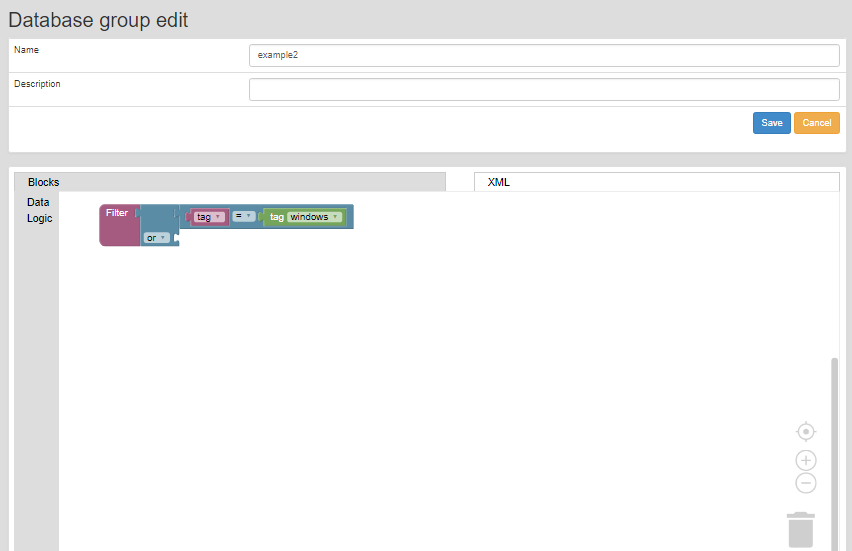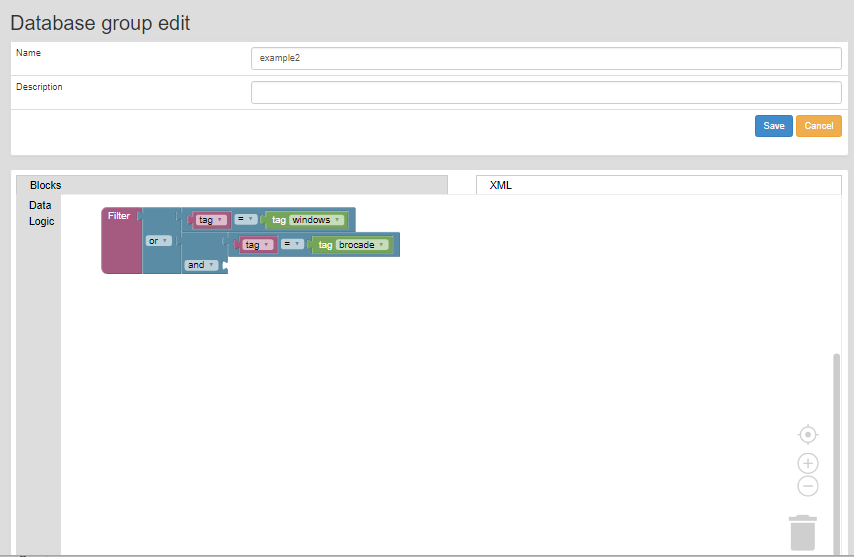Database Groups
Here you can define the user’s access to stored data (logs) in the Logmanager system.
If the user has access only to the data of a specific type or device, then define a database group and use it for the specific user.
As a rule, a user can be assigned to one database group.

Database Groups
Overview of Database Groups displays basic information:
- Name: Name of the database group.
- Description: Description of the database group.
The group “Admin” cannot be edited or deleted, all the other groups you can add, edit, or delete.
After clicking the plus icon it, displays a form where you can create a new database group.

Creating a new database group
Enter the basic information:
- Name: Short name of the database group, only lowercase letters a - z and numbers 0 - 9 are allowed.
- Description: Short description of the database group.
In the visual designer create a condition that will filter the data that the user may display. You can choose from three variables that are included in each message, and on the basis of these variables, perform the filter specification.
Variables you can choose from are:
- Forwarder: described in the chapter Logmanager Forwarder.
- Tag: described in the chapter Tags.
- Plugin input plugin (syslog, sql, vmware, …).
To edit a database group, click the blue pencil icon for the selected group.

Editing a database group
When editing you can change all fields as in the case of creating a new group.
To delete a database group, click the cross icon for the selected group. This starts a dialog box, where you confirm or cancel the deletion.

Deleting a database group
If the group contains a user, you receive the error message that the group is assigned to some users.
In this case, one must first make removal of a group for users who use it and then you can delete the group.